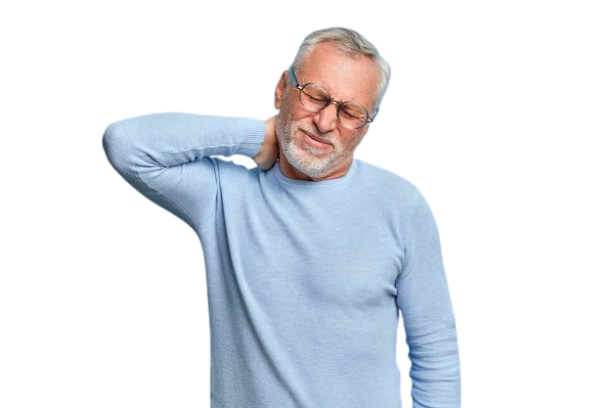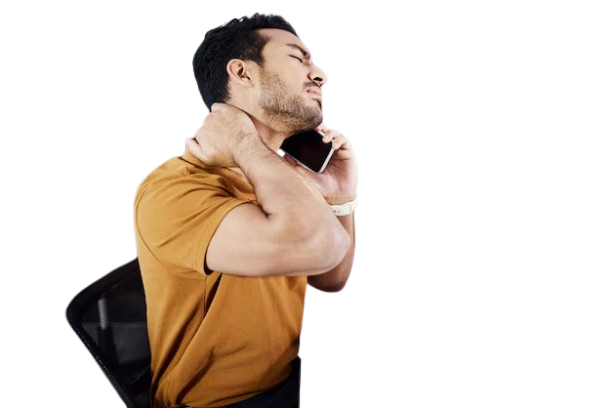What is Neck Pain?
Neck pain refers to discomfort or stiffness in the neck region, which includes the cervical spine, muscles, ligaments, and nerves. It can be acute (lasting a few days to weeks) or chronic (persisting for months).


Symptoms of Neck Pain
- Stiffness and reduced range of motion.
- Sharp or shooting pain.
- Pain radiating to the shoulders, arms, or head.
- Tingling, numbness, or weakness in the arms.
- Headaches, often at the base of the skull.
- Muscle tightness or spasms.
Diagnosis
- Medical History and Physical Examination: Assessing pain triggers, posture, and range of motion.
-
Imaging Tests:
X-rays: Detect bone issues like fractures or arthritis.
MRI or CT Scans: Identify soft tissue injuries or nerve compression. - Nerve Tests: Electromyography (EMG) to evaluate nerve function.


Prevention Tips
- Maintain Good Posture: Keep your head aligned with your shoulders and avoid slouching.
- Ergonomic Workspace: Adjust your desk, chair, and monitor for optimal positioning.
- Take Breaks: Avoid prolonged periods of sitting or repetitive tasks without breaks.
- Exercise Regularly: Strengthen neck and shoulder muscles to reduce strain.
When to Seek Medical Attention
- Severe or persistent neck pain lasting more than a few weeks.
- Pain radiating to the arms or legs.
- Weakness, tingling, or numbness in the limbs.
- Difficulty moving the head or neck.
- Neck pain accompanied by fever, weight loss, or other systemic symptoms.


Frequently Asked Questions
- Can neck pain go away on its own? Most mild neck pain resolves within a few days to weeks with proper care and rest.
- Is it safe to exercise with neck pain? Gentle stretches and low-impact exercises can help relieve pain, but consult a healthcare provider for guidance.
- What kind of pillow is best for neck pain? Orthopaedic or cervical pillows that support the natural curve of your neck are ideal.
- Are there alternative treatments for neck pain? Yes, acupuncture, yoga, and physical therapy are effective complementary treatments.